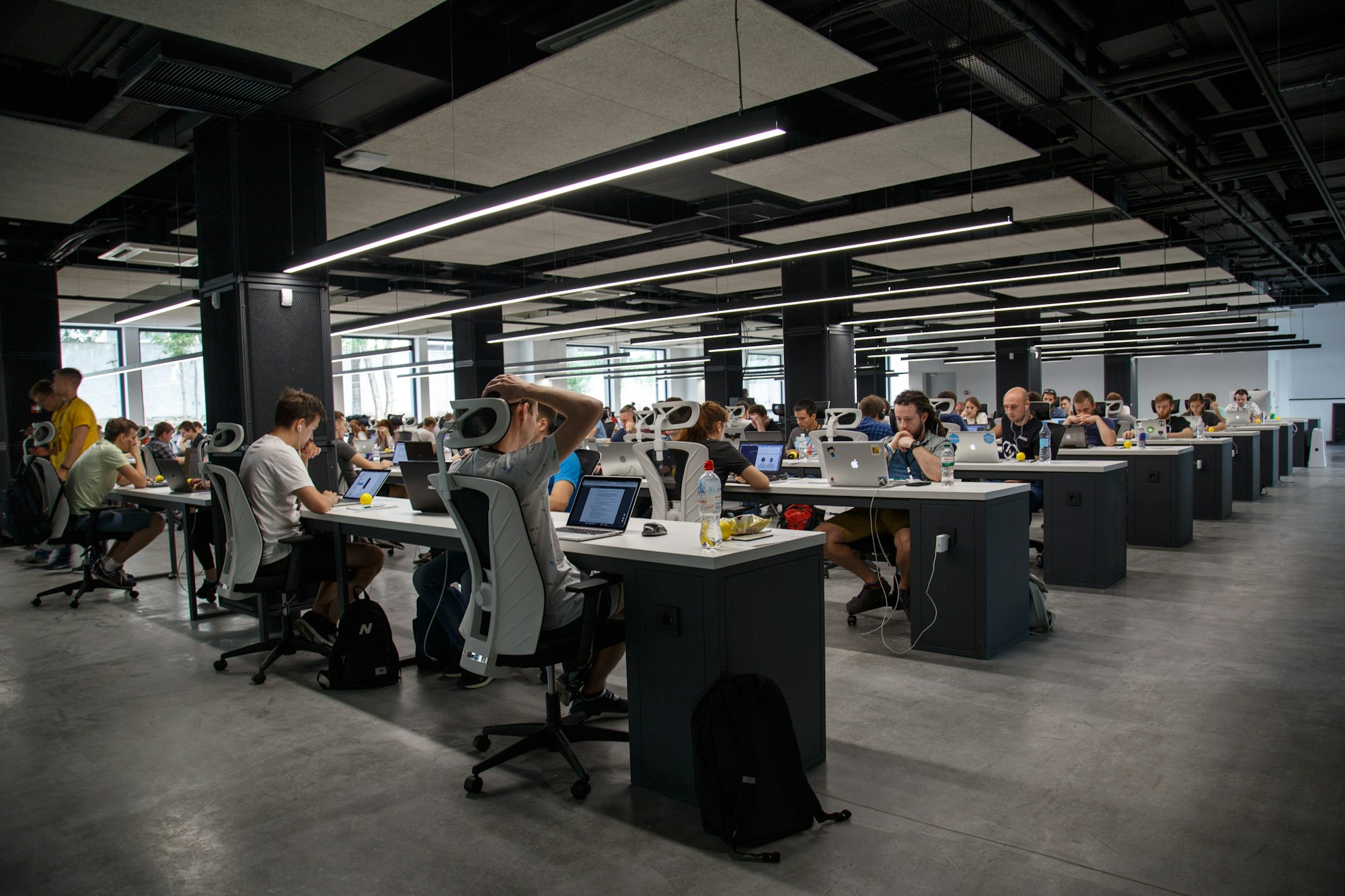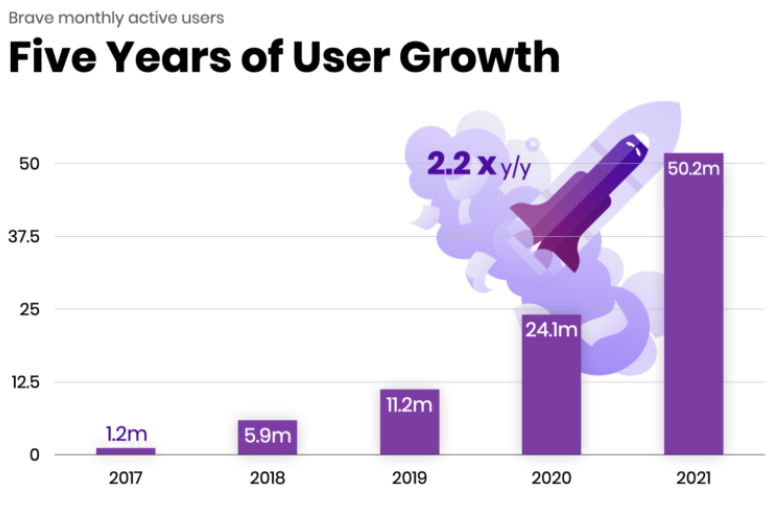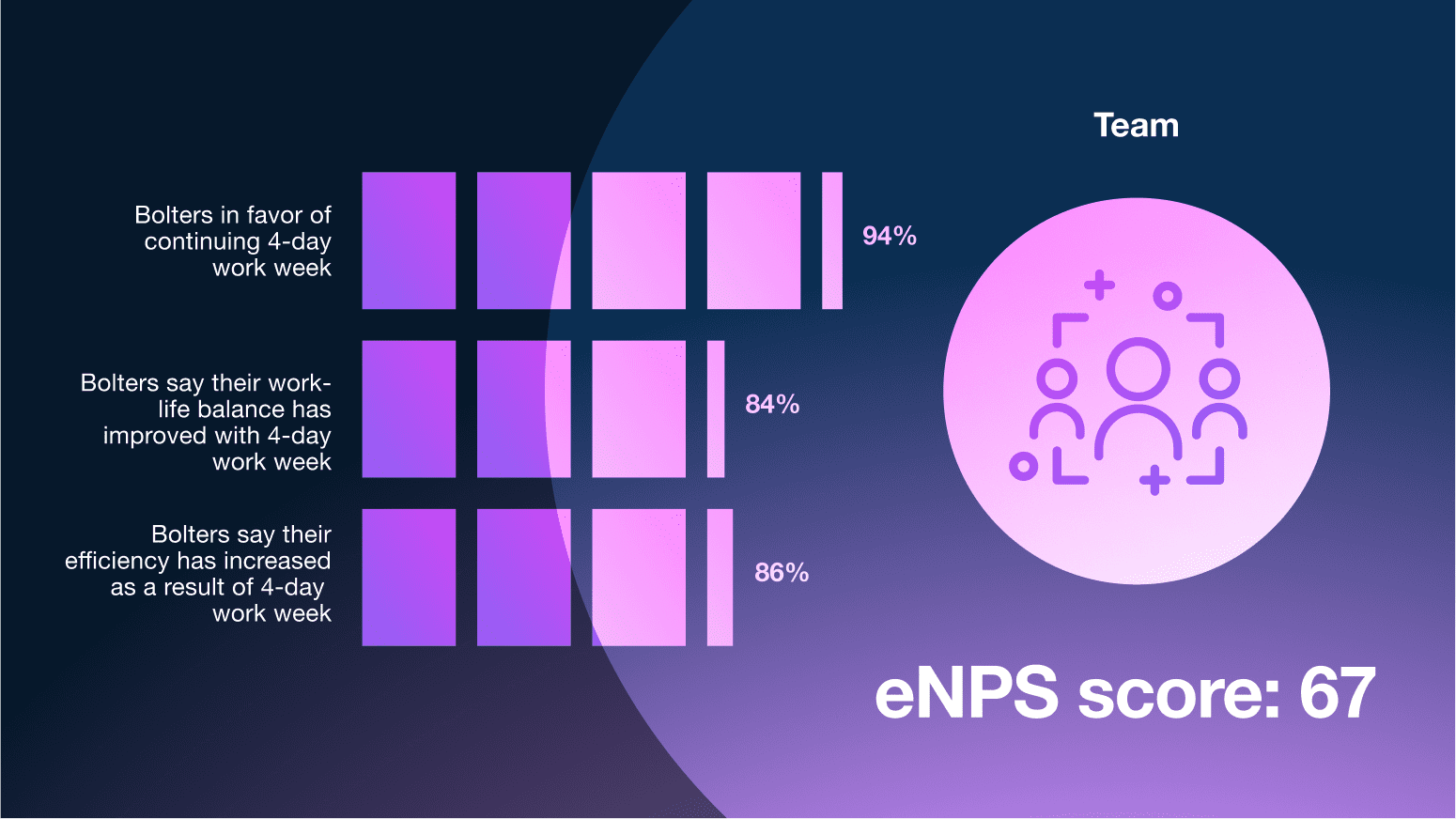DuckDuck Growth, Bolting to 4-Day Week, Metastasis at Facebook

Privacy Driving DuckDuckGo and Brave Growth
For the longest time it seemed like search engines and browsers built around privacy would have almost no impact, unable to wrest meaningful share from more established companies (read: Google). "People don't care enough about privacy to change their behavior," was the common refrain. But the recent growth of Brave and DuckDuckGo suggests things may be changing. Brave, which launched multiple products including a search engine in 2021, said "For the fifth year in a row, we’ve doubled the number of our monthly active users, going from 24 million MAU on December 31st, 2020, to over 50 million by the end of 2021." DuckDuckGo saw a 46% increase in search in 2021. The company said it now has "more than 100 million searches a day, and our most recent survey showed 27 million Americans (9%) use DuckDuckGo."

Our take:
- Google has more than 90% of mobile search and almost 90% of desktop search. So these companies aren't truly a threat at this point.
- Yet DuckDuckGo will likely become the #2 mobile search engine in the US this year, passing Yahoo.
- This growth reflects how privacy looms ever larger for many users, and some are finally changing their behavior in alignment with their values.
'Unicorn' Bolt Says Yes to 4-Day Week
There has been lots of discussion about the 4-day work week in the wake of reports about "the great resignation" and widespread employee burnout. Several companies around the world have tested it. Payments software company Bolt is one of them. It started testing the 4-day week in September and recently decided to "make it permanent." Staff and management had mostly positive feedback, though there were challenges: some had more stress Monday through Thursday, there were some "external" challenges and complaints about too many meetings during the 4 days. On the whole the reaction was positive though there are operational nuances and adjustments needed. Bolt CEO Ryan Breslow told CNBC, "A lot of companies operate with a lot of work theater, which is people caring more about the appearance of working than the actual work." Indeed.

Our take:
- While Microsoft had a successful test of the 4-day week in Japan, Bolt is the highest profile company to adopt a 4-day week.
- More companies will likely follow Bolt's lead now that it has shown the shorter week can work and improves employee satisfaction.
- The 4-day week may become a recruiting advantage for companies that have the capacity to effectively implement it.
Metastasis at Facebook
It's beyond debate that something is clearly wrong at Facebook (Meta). The company has been unwilling to take responsibility for the social and political harms it has unleashed or amplified. Yet Facebook has suffered few if any repercussions from years of willful blindness and malfeasance. It has 2 billion daily users and revenues continue to grow. Meta's market cap is just shy of $1 trillion and many institutional investors call it a "must buy." However The Information reported this week that the company stopped development on its AR/VR operating system (XROS) – a key strategic initiative. A probable reason is that the 300-person team-lead, Mark Lucovsky, left for Google following Facebook whistleblower Frances Haugen's earlier testimony, according to his own statement.

Our take:
- Facebook has seen multiple high-profile executive departures this past year. One might even say an unusually high number in a short period.
- Unlike Lucovsky, none have publicly said they were motivated by a distaste for what the company has become. That's probably a factor in some cases.
- The company's reputation and lack of consumer trust have hurt device sales (portal, glasses) and could compromise its metaverse efforts.
Short Takes
- The benefits of using Apple Maps web snapshots.
- Google showing more cars for sale in local SERPs.
- Google featuring new "Shops" area on mobile SERP.
- TweetTok: Twitter testing video reactions on iOS.
- Spotify introduces call-to-action cards (ads) for podcasts.
- Algorithms starting to ruin podcast advertising.
- 79% of Oculus' 2+ million post-Xmas installs were in the US.
- Some thoughtful predictions on cookies and privacy for 2022.
- NYT buys The Athletic for $550M; some interesting insights.
- LinkedIn to roll out audio and later video events in 2022.
- First presidential local search tweet about "COVID testing near me."
- Mob boss nabbed after police spot image on Google Street View.
- Snap denied trademark on "spectacles" is suing the USPTO.
- Google suffers patent loss to Sonos, will make software changes.
- French regulators impose big fines on Google, Facebook over cookies.
- Facebook sued for wrongful death for radicalizing shooter of deceased.
- ChowNow offers zero-commission food ordering for local restaurants.
- Taco Bell launches taco-a-day loyalty program to boost sales.
Listen to our latest podcast.

How can we make this better? Email us with suggestions and recommendations.

